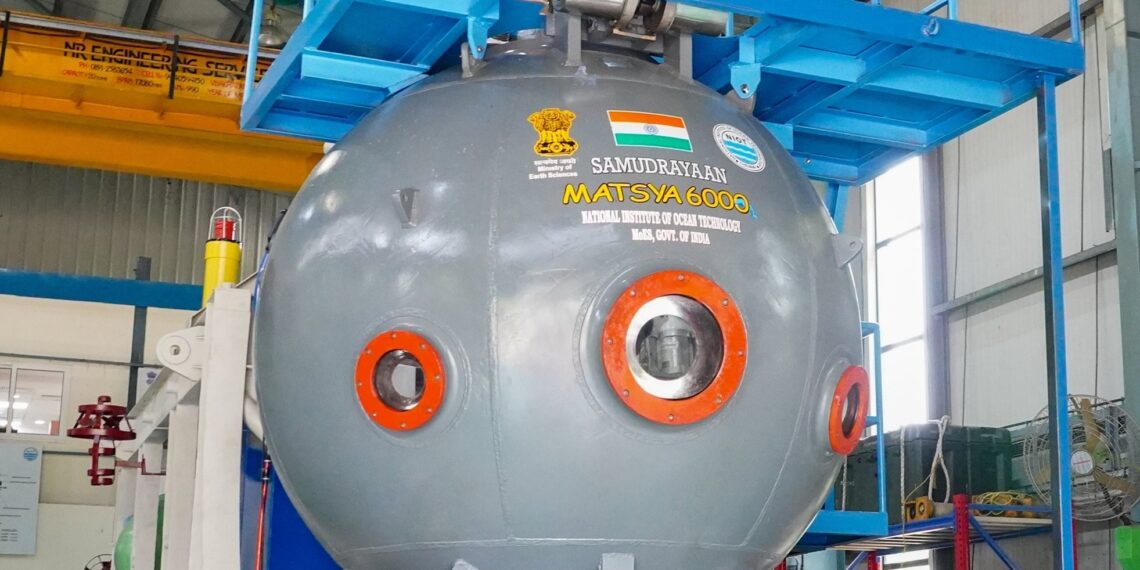New Delhi: India is charting a bold course into the unexplored depths of the ocean with its Rs. 4,077-crore Deep Ocean Mission, a five-year initiative designed to unlock the economic and scientific potential of the marine ecosystem while ensuring sustainability.
Led by the Ministry of Earth Sciences, the programme is central to the government’s strategy to boost the Blue Economy, which has been identified as a key driver of national growth by 2030.
Despite covering over 70% of the planet, the deep ocean remains one of Earth’s least understood realms — home to mineral deposits, unique biodiversity, renewable energy sources, and critical climate data.
For a nation with a 7,500-km coastline and more than 1,300 islands, harnessing these resources is as much an economic necessity as it is a scientific challenge.
A flagship initiative under the mission is the Samudrayaan Project, which aims to send humans into the ocean depths aboard MATSYA 6000, a state-of-the-art submersible capable of reaching depths of 6,000 metres.
In a significant milestone earlier this year, Indian aquanauts participated in deep-sea trials in the Atlantic Ocean using France’s Nautile submersible. The seven-hour dives provided vital experience in piloting techniques, buoyancy control, sample collection, and underwater communication.
India has now joined an elite group of countries with deep-diving capability.
During related expeditions in the Andaman Sea, over 100 kg of cobalt-rich polymetallic nodules were successfully retrieved from a depth of 1,173 metres, signalling early progress toward future mineral extraction from the seabed.
The mission focuses on building indigenous technology for deep-sea mining, ocean-based energy, and marine biotechnology — reducing reliance on critical mineral imports while boosting sectors such as shipping, fisheries, and marine research.
ALSO READ: Assam to develop historic Sootea police station as tourist destination
Officials say the initiative will also generate employment in engineering, scientific research, and marine tourism, and strengthen India’s position in global ocean governance.
Prime Minister Narendra Modi has described the effort as a modern-day “Samudra Manthan,” or ocean churning, to secure prosperity for future generations.
The programme also aligns with the United Nations’ “Decade of Ocean Science for Sustainable Development” (2021–2030), reinforcing India’s commitment to balancing resource exploration with environmental stewardship.















